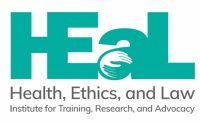Short Intensive Course on Ethics in Social Science and Public Health Research
Organizers: DLR Prerna, Darjeeling, West Bengal
Collaborator : St. Joseph’s College North Point Darjeeling
Supported by: Mariwala Health Initiative, Mumbai
Host: Dr Roshan Rai, Director, DLR, Prerna, Darjeeling
Course Director (By Invitation): Dr Amar Jesani, IJME, Mumbai
Days & Dates: Saturday – Wednesday, Nov 09-1, 2019 | Full day
Course Faculty:
- Dr Amar Jesani, MBBS, Independent Researchers and Consultant, Pubic Health and Bioethics, Mumbai; and Editor, Indian Journal of Medical Ethics (IJME)
- Prof Mala Ramanathan, PhD (IIPS, Mumbai), Masters in Medical Anthropology (Amsterdam), Bioethics (Harvard), AMCHSS, SCTIMST, Trivandrum; Working Editor, IJME; Member Secretary, IEC
- Dr Sunita Sheel Bandewar, PhD (Anthropology) and Masters in Bioethics (Toronto, Canada), Independent Researcher, Pune; Working Editor, IJME; and Director, HEaL (Health, Ethics and Law) Institute of Training, Research and Advocacy, Mumbai-Pune
- Jasmine Kalha, MA in Social Work (Tata Institute of Social Sciences, Mumbai), MPhil in Sociology (Delhi School of Economics, Delhi University). Centre for Mental Health Law and Policy, Indian Law Society, Pune. Implementing evidence-informed research on mental health and human rights: With public mental health systems through WHO’s QualityRights intervention at-scale in Gujarat; the scale-up of Atmiyata, community based mental health intervention in Mehsana District of Gujarat; intervention on implementing peer support within public mental health systems as part of a European Union consortium.
About the course: The core faculty of the short course in research ethics is involved in training researchers, programmers and others since 2003-4. The curriculum for the course is developed over time to sensitise and equip participants in identifying and integrating ethical concerns in the methodologies in the different fields of health research.
The course is meant not only to provide information and knowledge of research ethics but also impart skills in ethics analysis using research case studies, videos and by organizing mock ethics review of research proposal and protocols by the participants.
Goal: To enable participants to appreciate the salience of research ethics in upholding research integrity; and identify and apply ethical reasoning to social science and public health research
Specific learning objectives:
- To learn about history and origins of research ethics discourse and principles in human research ethics in social sciences and public/mental health research and their relevance to contemporary research in social sciences and public health.
- To introduce to participants the key theories and principles of research ethics, and the relevant national and international research ethics guidelines. To learn about the research governance, particularly about the structure and functioning of research ethics committees in India and the laws related to research ethics in India.
- To strengthen the understanding of specific concepts in research ethics such as privacy, confidentiality, standard of care, informed consent process, collaborative research, publication ethics, research integrity, etc.
- To appreciate research ethics challenges specific to quantitative and qualitative research methods, various designs of research (observational and experimental, including interventional research with complex public and mental programs).
- To learn about the research situation and the personal and the social contexts making participants of research vulnerable and the methods to provide additional protection without restricting their participation.
- To develop skills by discussion using adult learning methods and the study of real examples of cases and research protocols from Indian and the LMIC (Lowand Middle Income Countries).
Learning methods: Interactive Adult Learning methods will be used to enable participants to learn not only from the resource persons but also from each other. The interactive learning will be facilitated by shorter presentation with discussion, use of case studies and videos followed by discussion on them in every session and also constitution of participants in ethics committees to discuss and take decision in a mock ethics review session on the proposals/protocols used for research.
For whom it is meant?
- The language of workshop will be English (Indian), so working knowledge of language is essential.
- It would be helpful if the participants have qualification at least of Masters degree in social and basic sciences and/or graduation in a professional course.
- Some knowledge of quantitative and qualitative research would be needed to understand ethics in research. Some experience in conducting research would help more but it is not an absolute must.
- Readiness to read some of the background reading material that will be provided in advance.
- The participants will be required to spare time for all five days – the course is organised such as to expose participants, gradually and stepwise, to various aspects of research and the ethical issues.

